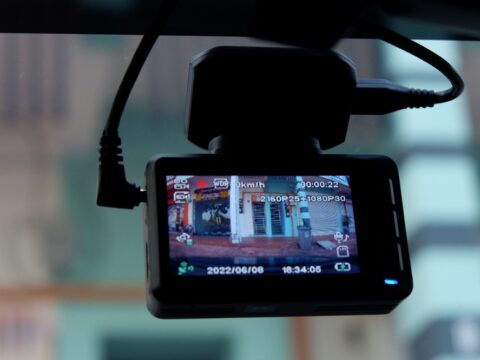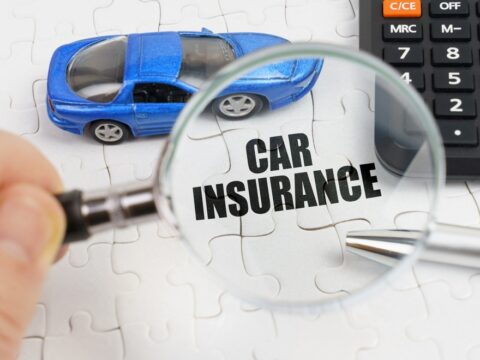Do you want to know how to become a pilot car driver? If so, you’ll want to keep reading! Below, you’ll find out what a pilot car driver is and how you can become one, and the wage you can potentially make. If this is something you think may be suitable, read along for more information.

Contents
An Introduction to Pilot Car Driving
Pilot car driving is one of those jobs you probably haven’t heard of before because it’s rarely discussed. It’s one of those professions that you don’t think about unless you’re aware of it.
However, it’s a very important job, and it can be a great way to make some extra income if you’ve got the determination for it.
Pilot car drivers drive cars in front of large body trucks that carry cargo such as aircraft wings and mobile homes.
The cars are fitted with sirens and bright flashing lights, designed to warn other traffic that an exceptionally large load is coming, giving them time to move out of the way.
Becoming a pilot driver isn’t difficult, and there isn’t even a need for a college degree. In certain states, you won’t even need a diploma from high school.
What Does A Pilot Car Driver Do?
Pilot car operators drive vehicles that act as escorts for large loads and vehicles. In simple terms, drive vehicles that act as escorts for large loads and vehicles. As well as mobile homes, these loads can include large construction equipment and vehicles.
Pilot car driving involves traveling ahead of large trucks to warn oncoming traffic. Not only that, but drivers have to study the road up ahead and warn the truck driver through a radio of any potential hazards or obstacles that could affect their journey.
Safety is of paramount importance for pilot car driving because even a small mistake can be disastrous. A second pilot car operator usually travels behind the truck to warn drivers.
If you want to become an escort vehicle driver, you’ll take on a noble task. Apart from the good salary, you’ll also play an essential part in ensuring other drivers are safe when traveling alongside truck drivers. The task of ensuring the truck driver’s journey is done safely can be very fulfilling and rewarding.
How Does One Become A Certified Pilot Car Driver?
Generally, a valid driver’s license is the least you’ll need to become a pilot car operator. Each state has different rules about further license procedures, with certain states even requiring extra licensure or course work.
Other states expect pilot car drivers to adhere to the pilot driving rules – which you’ll be responsible for learning.
Pilot car driver requirements
Be aged 18 or over
All potential pilot drivers must be at least 18 years of age for safety reasons. However, in some states, the minimum age maybe 21. Be sure to check the minimum age requirement in your local state.
Must carry the correct equipment
Most states require drivers to carry specific equipment, and you must know how to operate said equipment. This typically includes:
- Stop and Slow flagging paddles
- Flares
- A measuring rod
- Safety cones – the required size varies between states
- Reflective warning triangles
Remember that it’s up to you as the driver to know what is required by each state. If you’re caught traveling without the proper safety equipment, you could be given a hefty fine.
Some states such as Utah, New Mexico, or Louisiana require pilot car drivers to stop for an inspection. If you’re not carrying the minimum required safety equipment and tools, you’ll be denied entry, meaning you’ll have wasted time and money.
Driver’s license
Like any other transportation job, a driver’s license is one of the most basic and important requirements of pilot car drivers. A clean driving record is essential because there is a huge emphasis on safety when becoming an escort vehicle operator.
You must also hold a class A, B, or C commercial driving license or have completed a defensive driving course.
Carry adequate liability insurance
Before you start driving, you must have the correct insurance in place. Pilot car insurance can save you time and stress if there is an accident that damages the car, you, or a third party.
The requirements for pilot car insurance depend on the state, but generally, all states require a minimum of commercial auto cover for pilot vehicles. Other cover types such as general liability and professional liability are only recommended.
As a pilot vehicle driver, professional liability will cover your extra duties, but some companies may also need you to have general liability. It’s your responsibility to decide how much coverage you need and can afford.

Oversize load pilot car driver requirements
Insurance and permits
Oversize escort vehicle drivers must confirm that the haulage company has a permit required by the state’s transportation department. Although state laws vary, the permit must include the name and the escort information of the haulage company and the load size.
As the escort driver, you must retain a copy of this permit in your pilot car. You must also have the minimum liability insurance required by the local state’s commercial vehicle law.
Pilot car certification requirements
Every state has its own set of rules for the pilot car certification conditions, so check with your local area. However, these are the states where you’ll need to be certified:
- Colorado
- Arizona
- New York
- Oklahoma
- New Mexico
- Georgia
- Virginia
- Nevada
- Louisiana
- Florida
- Washington
- Minnesota
Communication and inspection
Before pilot car drivers start working, they must perform pre-trip inspections. This involves checking the fluid levels, tires, and lights on the vehicle. As an escort driver, you must also communicate with the truck driver to work out the most suitable route.
During the journey, you must constantly communicate with the load driver using a two-way radio. You’ll also need to communicate with other load and escort drivers to warn them that a large load is approaching. Pilot car drivers are also responsible for locating a safe place for the truck driver to pull over.
State laws
Following the laws of your local state is essential for escort vehicle drivers, whether you’re following or leading a large load.
Your other responsibilities will include warning traffic of the oversized load’s presence and keeping a suitable distance behind or in front of the truck, as required by the state. In most states, pilot cars are not allowed to tow trailers or other vehicles while escorting large loads.
Pilot Car Driver Training And Certification
Although most states don’t require drivers to be certified, the states that do tend to have strict conditions when it comes to driver equipment and training—becoming certified means that you must pass an approved pilot car training course and test, as well as demonstrate that you’re carrying the correct equipment.
The states that don’t need drivers to be certified still require drivers to have permits before they start working. The states that do require certification usually offer 1-day approved training courses.
Once you’ve completed the course, you’ll sit a written pilot exam to show that you’re capable of carrying and using the required safety equipment, directing traffic when needed, and operating as a flagger.
To find the nearest pilot training course to you, stop off at your local State Department of Transportation. But, if you live in Colorado or Washington, it’s probably better to take an online escort certification course.
How Much Does A Pilot Car Driver Make?
Escort car drivers are usually paid for each mile that they drive. The pay may vary, but for the first 100-150 miles, you can expect to make roughly $200. For every following mile, you’ll receive between $1.30-$1.50.
This equates to around $34,000 per year. However, because you’ll be paid per mile, there’s no limit as to how much you can earn as long as there’s enough work available. As a driver, you can typically work as little or as much as you’d like, with your income reflecting this.
Something else to remember is that you’ll probably use your own car for work. This means you’ll be responsible for fuel, repair, and maintenance costs. Expensive repairs and other unforeseen vehicle-related costs can all add up.
However, you’ll be able to claim back these costs and the mileage you cover for a tax deduction because you’ll be registered as self-employed.
How To Get A Job As A Pilot Car Driver
If you’d like to get into the pilot car business, start by chatting to escort drivers in your local area. Many of them will be happy to discuss it and show you the ropes if you’re interested.
Ask if you can go on some ride-along to see what the job involves before you take the plunge yourself. Be sure to ask which laws govern escort drivers in your local state to make sure you’re fully licensed.














